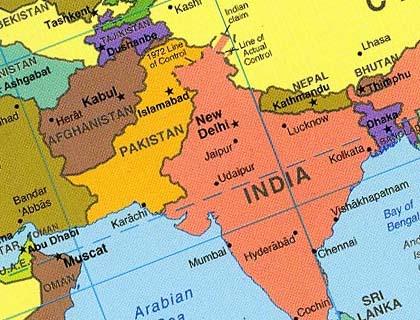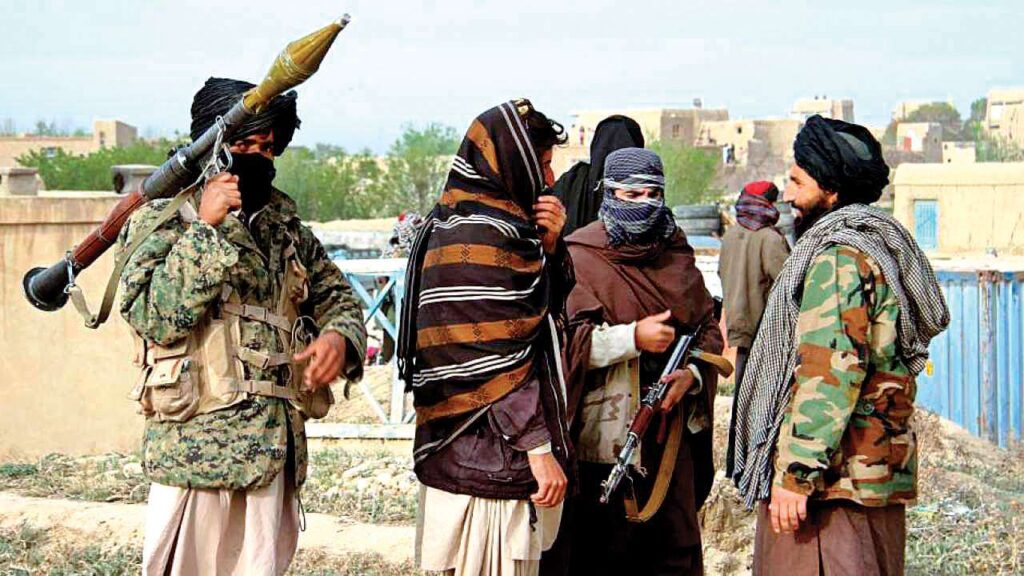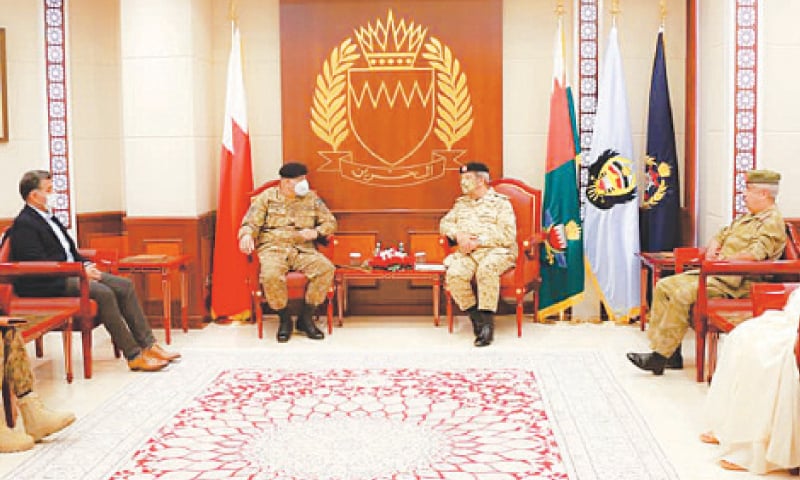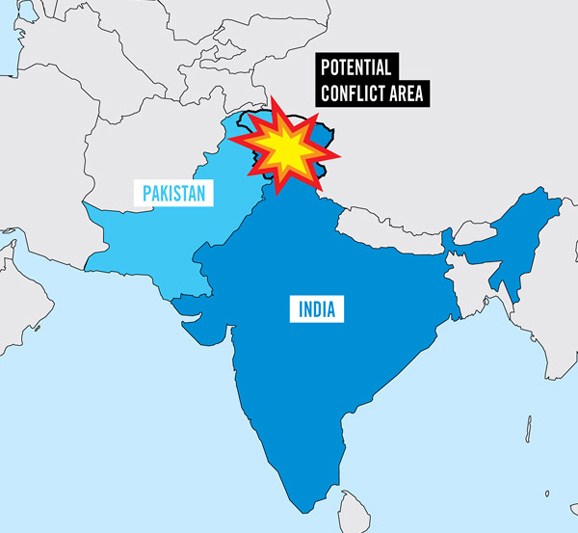ISLAMABAD: Army Chief Gen Qamar Bajwa and Director General of Inter-Services Intelligence Lt Gen Faiz Hameed attended a session on Afghan peace process in Bahrain, it emerged on Wednesday.
Secondly, Pakistani officials have voiced concerns over the US proposal to invite India at the UN-sponsored meeting of regional countries aimed at adopting a “unified approach” on the Afghan endgame.
The Inter-Services Public Relations (ISPR) in a statement said: “Current developments in Afghan peace process, border security and necessary steps to be undertaken to facilitate an Afghan-led and Afghan-owned peace process were discussed” during the meeting which was held on Tuesday.

It was reportedly part of the international efforts to accelerate the Afghan peace process that is virtually stalled at the moment and included key players in the process.
The meeting has taken place at a time when the United States is planning to request the United Nations to convene a meeting of the foreign ministers and envoys from Russia, China, Pakistan, Iran, India, and the US so that the regional countries could develop a unified approach for supporting the peace process.

The Biden administration has also proposed a ‘power sharing agreement’ between the Afghan government and the Taliban.
Secretary of State Antony Blinken, in a letter to President Ashraf Ghani, underscored the urgency for a political settlement of the Afghan dispute, while warning that “Taliban could make rapid territorial gains” in the eventuality of a US withdrawal. The US, under an agreement signed with the Taliban in February 2020, has to complete its withdrawal from Afghanistan by May 1.
US Special Envoy for Afghan Reconciliation Zalmay Khalil-zad, who visited Pakistan on Monday, in his meeting with Gen Bajwa stressed the need to accelerate progress towards “a just and durable peace” in Afghanistan.
Russia is, meanwhile, hosting a meeting of the ‘extended troika’ on March 18. The US, China, Pakistan, Afghan government and the Taliban have been invited to the meeting by Moscow.
“During the meetings, issues of mutual interest and regional security situation came under discussion. COAS offered Pakistan’s complete support in achieving shared interests in bilateral security cooperation including training and capacity building,” the ISPR said.
Islamabad has not yet officially responded to the four-point strategy of the Biden administration that includes requesting the UN to convene a meeting of foreign ministers of Pakistan, Russia, US, Iran, China and India but official sources have confirmed to The Express Tribune that Pakistan has reservations over the inclusion of New Delhi in the process.
Pakistan’s opposition stems from the fact that only those countries which share borders with Afghanistan should be part of the process.
“Since India does not share a border with Afghanistan, therefore, it should not be part of the process,” said a senior official, while requesting anonymity.
The other reason that Pakistan is sceptical of India’s inclusion in the latest US diplomatic push to seek an end to the Afghan war is that New Delhi is a “spoiler” and has used the Afghan soil to undermine Pakistan’s security.
Prime Minister’s Special Assistant on National Security Dr Moeed Yousaf expressed the similar views when asked to comment on the development in a TV programme. “We have repeatedly stated that peace cannot be achieved through a spoiler,” Moeed told a private TV channel.
“We have proof of what India has been doing against Pakistan using the Afghan soil,” he added. “India does not have any interest in peace in Afghanistan. If there is peace in Afghanistan the situation will change and India’s influence will diminish there [Afghanistan] naturally.”
Dr Yousaf went on to say that at this stage these were “just proposals” and Pakistan would get a chance to put across its view when these suggestions would take shape.
India, although made massive economic investments in Afghanistan, has not yet agreed to speak to the Afghan Taliban directly despite efforts by the US. Other regional countries such as Iran and Russia, which in the past were Taliban’s adversaries, have changed their stances and now recognised the insurgent group as a political entity.
New Delhi, however, is in a dilemma whether to reach out to the Taliban given its historic stance and importantly it considers the insurgent group close to Pakistan.
Some retired diplomats believe that Pakistan should not object to the US move of inviting India at the UN conference on Afghanistan.
“For us the key is that there should be peace in Afghanistan and the peace can only return when there is some sort of pressure on India. I see this is a good move for Pakistan,” commented Abdul Basit, former ambassador to India.
According to Basit, the inclusion of India in the Afghan peace process can never dilute Pakistan’s importance since “we share 2,400 km long border with Afghanistan”.
The UN-sponsored conference on Afghanistan is part of a four-point strategy the US Secretary of State recently outlined in a letter to President Ashraf Ghani. The plan envisages a UN conference, high-level talks between the Afghan government and Taliban in Turkey, 90-day reduction in violence and a new inclusive government.
Secretary Anthony Blinkin ended the letter with a warning to President Ghani of a possible Taliban take over after the US troops’ withdrawal from the war-torn country.

The Afghan president is reluctant to agree on the idea of interim government, while the Afghan Taliban said they are currently reviewing the US proposals.
The Biden administration appears to be in a desperate bid to put together some kind of arrangement within the next few months in order to leave Afghanistan. But observers believe that it is an uphill task to persuade different Afghan players to arrive at a consensus on the future of Afghanistan.


